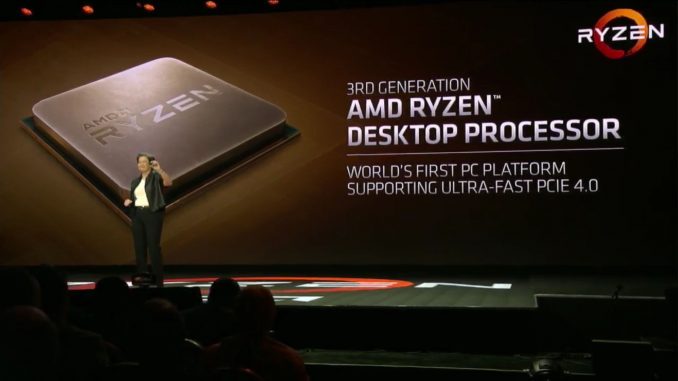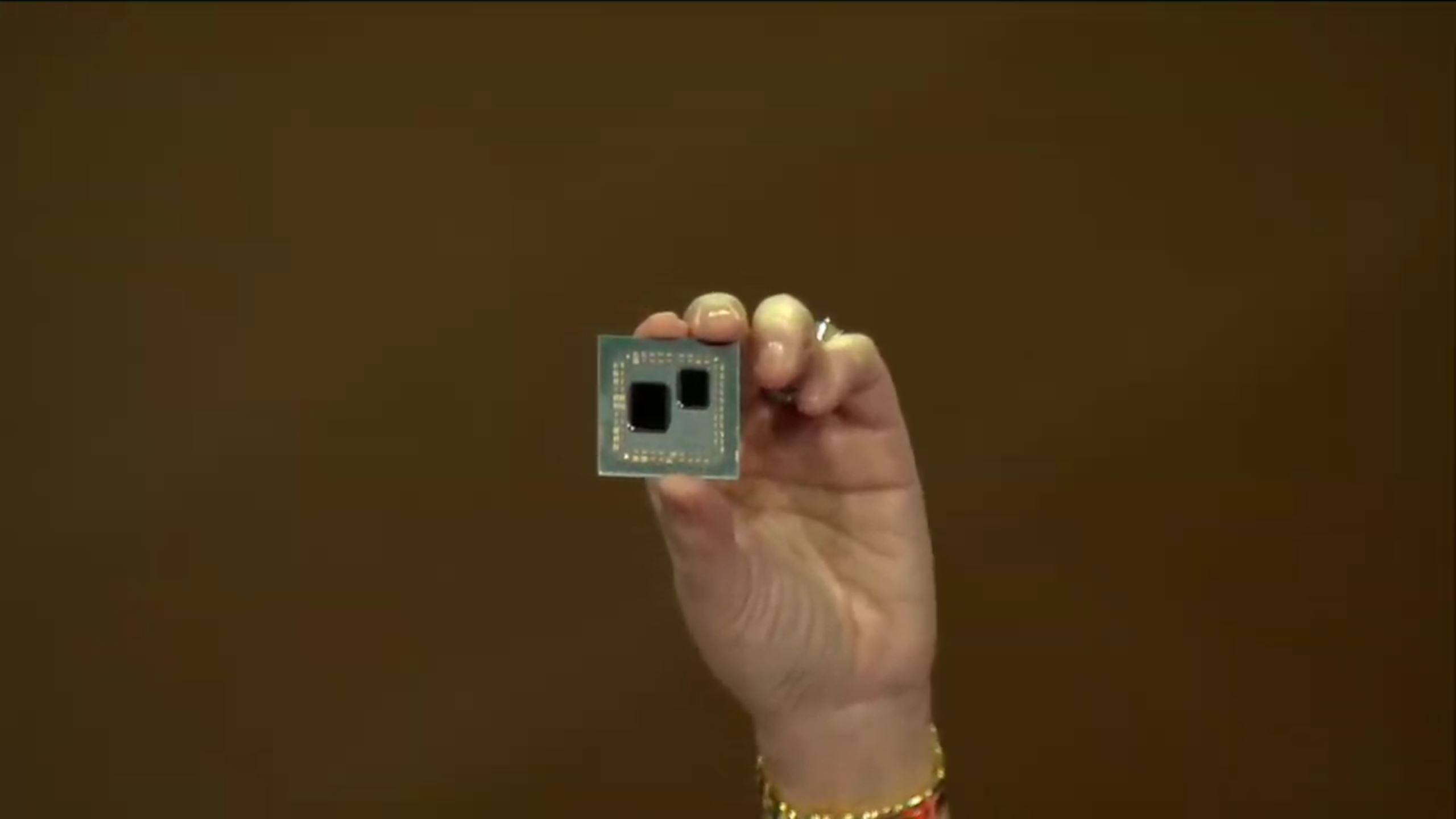
AMD has also published details on Ryzen 3000 at their CES keynote. The CPUs come with the well-known chiplet design and PCIe 4.0, but not until mid 2019.
Ryzen 3000: AMD stays under the radar
Actually, we had already expected the first specific details of the new Ryzen 3000 generation at CES 2019. At today’s keynote, however, AMD was rather cautious about the new generation. So there was only some information about the platform itself and not as hoped and leaked the whole technical data. The focus was rather on the new Radeon Vega VII. According to AMD CEO Lisa Su the development of Ryzen 3000 is still ongoing. Therefore there are no exact details like the already leaked clock rates or the number of cores. Some details, however, can already be revealed.
Chiplet design, PCIe 4.0 support and still on AM4
Lisa Su mentions one of the most important points right at the beginning of the presentation. Even with the new Ryzen 3000 generation, AMD remains loyal to the AM4 platform. Accordingly, the new processors do not require a motherboard change. But if you want to use the new features, you have to buy a new motherboard. The most important of these features is probably PCIe 4.0. With Ryzen 3000 and the Zen 2 cores, AMD is also relying on the new connection in the mainstream market that is twice as fast as PCIe 3.0. Epyc 2 alias Rome also relies on PCIe 4.0.
Lisa Su also showed a Ryzen 3000 processor without heatspreader at the keynote. AMD uses a chiplet design for the new generation as they used for Epyc 2. The larger visible chip is an I/O hub, which handles the memory interface and the connections, while the smaller chiplets contain the actual processor cores. Only one chip is soldered on the CPU shown, which probably contains 8 cores. The position is also interesting. Below it there is room for a second chiplet, which indicates that AMD could actually use 16 cores in the new Ryzen generation.

Ryzen 3000 eight-core faster than i9-9900K, launch mid-2019
There was also a short performance demonstration of a Ryzen 3000 engineering sample directly at the keynote. The engineering sample works with eight cores and 16 threads and competed against Intel’s Core i9-9900K. The AMD system achieved 2,057 multi-core points in Cinebench, while the i9-9900K was just behind with 2,040 points. AMD also pointed out the power consumption during the test. Accordingly, the i9-9900K consumed a maximum of 179.9 watts, while the Ryzen 3000 processor only consumed 133.4 watts.
AMD also commented on the launch date at the keynote. Accordingly, the entire Ryzen 3000 generation will be on the market in mid-2019. The first Epyc 2 processors will also be delivered at this time. A possible date for the launch would therefore be Computex 2019 in Taipei. According to Lisa Su, the processors will be presented with precise technical data before the launch date. It is therefore quite possible that there will be a separate launch event for Ryzen 3000 before Computex.

Be the first to comment